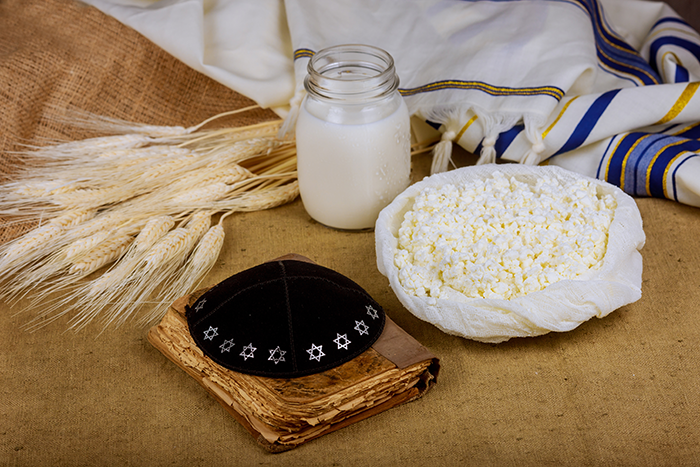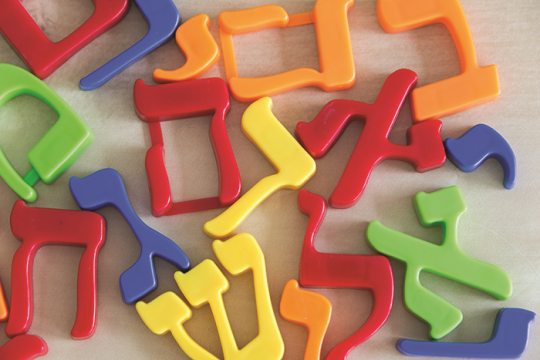
In honor of Shavuot and the Giving of the Torah, I have been spending some time reflecting on some of my favorite teachings from Jewish sacred literature that resonate with me, feel most important, or are especially timely. I'm especially impacted by the passage from the Mishnah in Sanhedrin 4:5 that all people are descendants from a single person so that no one person can say, "my ancestor is greater than yours." The Midrash in Yalkut Shimoni 1:13 tells us that God created humanity from the four corners of the earth with yellow clay, white sand, black loam, and red soil. Therefore, the earth can declare to no part of humanity that it does not belong here, that its soil is not their rightful home.
I asked three esteemed colleagues who are Leaders of Color in the Reform Movement to share their most cherished Jewish texts.
Denise Dautoff (she/her)
They are like trees planted by streams, they bear their fruit in season, their leaves never wither, everything they do succeeds.
(Psalms 1:3)
The symbolism of a tree is a beautiful metaphor and from it, we can learn so much about ourselves, our resilience, and our inner connection with nature. The roots of a tree are a symbol of our faith, rooted and grounded in God. Its branches extend far and wide, symbolizing inclusivity and belonging, and its fruit is our ability to grow and breathe new life into our beloved, beautiful Jewish community.
Tyler Samuels (he/him)
This piece of Torah might be considered morbid if I said it was my favorite, but the death of Moses inspires me. A man adopted into wealth and status as an Egyptian gave it all up to lead his people, the Hebrews, out of bondage to a land of freedom. Moses was slow of speech, but G-d chose him to lead us to the Promised Land. When I was a child learning this passage, I would become angry at G-d, wondering how G-d could place this burden on Moses, a man who led hundreds of thousands of people, people who did not always take kindly to his leadership, only to leave him to die on a mountaintop for simply striking a stone?
A little boy's anger lessened with age and the ability to read the (Jewish law) and other commentaries. As Rabbi Lord Jonathan Sacks argued about this very issue, the children of Israel were no longer enslaved people, and the generation that experienced bondage was dead. These children were free and could not be struck like a slave or rocks. As Rabbi Sacks taught, they must be persuaded.
This piece of Torah has influenced my leadership style over the years. Harshness does not force a donkey to drink water; leaders must persuade the donkey to see the benefit of drinking it. However, we must also recognize we will not always see the victorious conclusion of our struggle. Moses died without ever seeing his people flourish in the Land of Milk and Honey, like Martin Luther King Jr. on the mountaintop of civil rights, without the ability to cross the river Jordan of true equality.
As a child, I was comforted by the last line, "and there has not arisen a prophet since in Israel like Moses, whom Adonai knew face to face" (Deuteronomy 34:10).
It made me cry, and even now, it makes me cry in awe on rare occasions. G-d sees all our flaws, especially in leadership, yet finds the ability to forgive, trust, and love. Something we mortals must learn to do more often.
Shayna Han (she/her)
One of my favorite Talmudic stories is "The Oven of Akhnai." The rabbis were debating about a new kind of oven and its ritual purity. Rabbi Eliezer presented argument after argument in favor of the oven's ritual purity, but the other rabbis did not accept his explanations. In his fervor, Rabbi Eliezer caused miracles, but the other rabbis refused to accept the miracles as proof:
"Rabbi Eliezer then said to them: 'If the halachah is in accordance with my opinion, Heaven will prove it.' A Divine Voice emerged from Heaven and said: 'Why are you differing with Rabbi Eliezer, as the halachah is in accordance with his opinion in every place that he expresses an opinion?' Rabbi Joshua then countered, 'The Torah is not in heaven'" (Bava M'tzia 59b:4-5).
There's a lovely corollary to this story: generations later, Rabbi Natan (inspired by the argument between Rabbi Eliezer and Rabbi Joshua), asked Elijah what the Eternal did in response to Rabbi Joshua's response. Elijah said, "God smiled and said, 'My children have defeated Me!" (Bava M'tzia 59b).
As the writing of the Torah retreats farther away in time from us, time also continues us forward, toward the goal of a more perfect world - and the words and precepts of the Torah enable us to realize that vision more quickly. This is the Eternal's everlasting gift to the Children of Israel: not only instructions for how to be Jewish through the teachings of Torah, but ownership of how to be Jewish - how we incorporate Jewish teachings and spiritual practices into our lives.
Related Posts

Communities of Belonging Don’t Just Happen…URJ Camps are Putting in the Work

Supporting Colleagues with Disabilities

